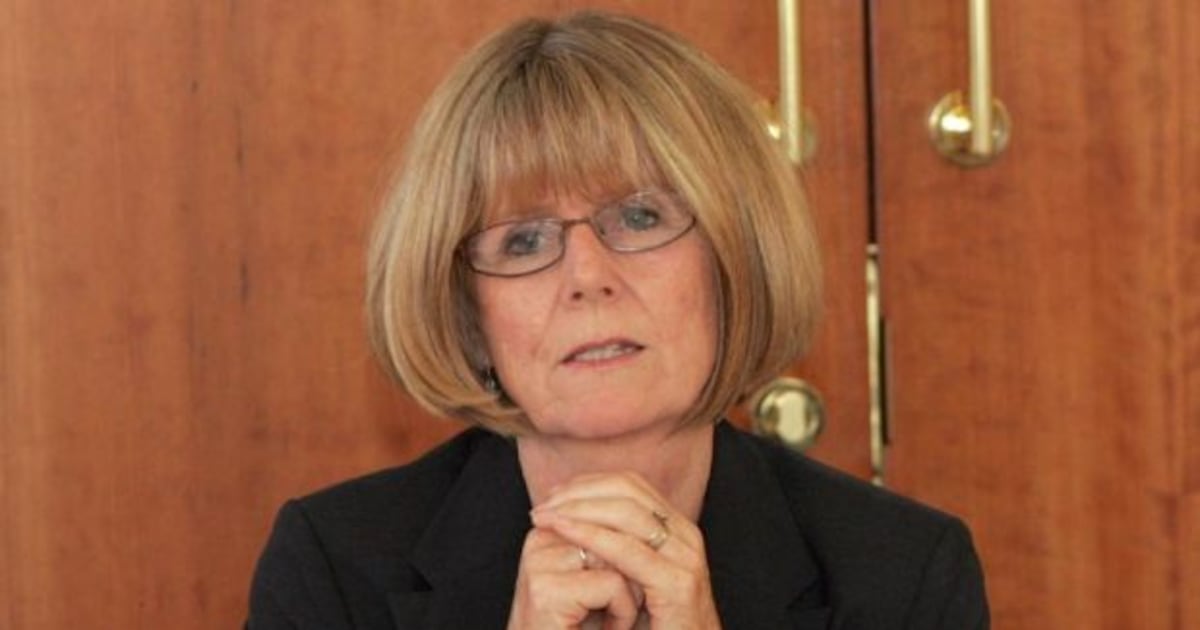The chair of the National Review Panel (NRP), which investigates deaths of children in care or known to Tusla, has called on the Ombudsman for Children to “retract” comments criticising her organisation.
Dr Helen Buckley, speaking as her panel prepares to review the case of a boy missing from his north Dublin home for several years and presumed dead, said Dr Niall Muldoon’s comments were inaccurate, “baffling” and “grossly” misrepresentative of the panel’s work.
“I would like him to retract them,” she told The Irish Times. “It was very disappointing that he would so grossly misrepresent what we do.”
Dr Muldoon last week raised concerns about the State’s response to missing children known to Tusla and presumed dead, including the current Donabate case and that of Co Louth boy Kyran Durnin.
Kyran, who would be nine, was last seen in July 2022. He was reported missing last year after Tusla became concerned about his whereabouts.
Dr Muldoon, in a television interview, questioned the NRP’s independence. He said since its establishment in 2010 it had published “about 19 reports”. It has in fact conducted 133 reviews of which 90 have been published.
He did not have confidence in Tusla’s response to the current case. This included Tusla having “just landed [this case] with the National Review Panel because they themselves, the Department of Children in 2018 said that the NRP needed to be put on a statutory footing and they’ve never done it”.
The Ombudsman for Children Dr Niall Muldoon: ‘I acknowledge and apologise for the error I made when citing the number of [NRP] reports published.’ Photograph: Sam Boal/Collins Photos
In a separate statement on his organisation’s website, Dr Muldoon said: “This [the NRP] is a structure that has no statutory power, has no independent authority to publish reports, and both Tusla and the Department of Children agreed that it is not fit for purpose since 2018.”
Dr Buckley, said she did “not want to get into a public spat with Dr Muldoon” but had to “insist” on the NRP’s independence, to correct “inaccuracies” and express concern that his comments could undermine the panel.
The NRP would begin its review of the missing Donabate boy’s interactions with Tusla and any other agencies, as soon as Tusla’s internal rapid review was complete – expected within a week – she said.
[ How can a child just disappear without the State even noticing?Opens in new window ]
“I think in a case like this the department [of Children] will intervene if there is any hesitation on any person or organisation’s part [to co-operate]. We normally do [get co-operation].
“It is sometimes the case that services get very tied up with GDPR [data protection] and are really unclear. I find this right across the board – about what information can be shared and on what basis.”
She agreed placing the NRP on a statutory footing would “eliminate” hesitation to co-operate with it.
“The statement he made about our lack of fitness for purpose is baffling to us because our purpose is very clearly stated on the website. If you look [at the website] our guidance is there so we are absolutely transparent about the way we do our process.
“Our purpose is clearly stated and the reports that are on the NRP website clearly indicate that we have met the purpose for which we were intended.”
Rejecting concerns about the panel’s independence of Tusla, Dr Buckley said: “Nobody on our panel ever worked for Tusla. We have a mixed group of people [with expertise in] social work, human rights, psychology, law.”
Asked about the fact Tusla announces and publishes NRP reports, she said: “That is an issue … [Self-publication of reports] is one of the things we are working towards … We would need more staff, a more robust structure. We have been looking for this for a long time, since the start.”
She was “more hopeful” than before that the department was supportive of the NRP having its own administrative staff, its own budget and to be “much more stand alone” with clearer reporting structures.
“It would not affect how we do our work. We would still do our work the same way, but the public perception would be clearer … I want to insist that we are independent, that we are transparent.”
The NRP’s work was important and had positive impact, she said. “Our recommendations have determined policy change within Tusla.”
Dr Muldoon said on Thursday: “I have always had the highest regard for those working with the NRP, including Prof Buckley who has vast experience spanning back to the Ferns report. I acknowledge and apologise for the error I made when citing the number of reports published.
“I believe the purpose of any State-mandated review into the case of the missing boy in Donabate needs to examine not just Tusla’s role, but all other public agencies’ interactions with the child and family, subsequent to his case being closed by Tusla and up to the Garda involvement last week. I do not believe the NRP can carry out such a wide-ranging review.
“The current programme for government commits to establishing that national child death review mechanism on a statutory basis and we await the appointment of a lead department to progress it.”

